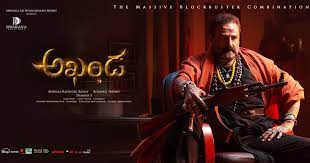January 21, 2022
"Akhanda" (Telugu Film Review)
April 30, 2021
"Vakeel Saab" (Telugu)
March 29, 2021
The Suez Canal Syndrome: A repeat of "Who Moved My Cheese?"
I have a different view of The Suez Canal ship incident. I am appalled at the indifference of the Egypt Govt. It again reflects the shoddy way in which a Canal which was the pride of British, an engineering marvel now faces lack of modernisation and efficiency. The Suez Canal became a reality with the efforts of Ferdinand de Lesseps. It became a symbol of the British Empire, it's opening - one of the 20th Century's biggest events. Then, the Suez blockage of 1969 - became a subject of the pride of British Empire. Eventually, the crisis got resolved by making Egypt the new national owner through The Suez Canal Company - through which 90% of the world's ships pass.
But Egypt has done nothing to develop the Canal since which became one of its biggest revenue sources, fraught anyways with desert lands on one side and Pyramid tourism on the other hand. It is owned by Egypt - The Suel Canal Company with few other external shareholders representing British, French and German interests. The company collects around $150,000 per ship every day. So an average of 50 ships pass through the Canal every day. That means around $7.5 million per day. Works out to $2.7 billion per annum. With that kind of easy money just for collecting toll, Egypt could have done so much better in improving the dredging and automating the offloading practices at the Isthmus but no, the government didn't do much to improve upon their practices, still manual and ancient. The Evergreen type of incident will keep repeating unless the world finds other avenues of diverting traffic, or demands more accountability from Egypt. I call it the Suez Canal syndrome - it happens when you get lot of annuity revenue for doing nothing much new. It can happen to anybody and any entity - who cannot innovate and manure their portfolio of cash flows coming in for a good reason now, but do not know how long the good times last. Suez Canal Syndrome, I would call is that syndrome where you take your cashflows for granted without manuring the ground for earning cash flows enough. It can be Egypt today, or Saudi Arabia after 15 years etc. Reminds me of "Who moved my Cheese?" story.
Moral of the Story: Never take your cash-flows for granted.
#SuezCanal #SuezCanalSyndrome
October 13, 2020
Scam 1992 - The Harshad Mehta Story Web Series Review
May 1, 2020
Covid Lessons From "Sankarabharanam" Movie
A Lucky Star without Tantrums - Rishi Kapoor
April 29, 2020
Life of an Infinite Actor - Irrfan Khan
The Five Recommended Books of 2024
Here are my Top Five Books of 2024 - a must-read! 1. The Golden Road by William Dalrymple 2. Th...

-
Here are my Top Five Books of 2024 - a must-read! 1. The Golden Road by William Dalrymple 2. Th...
-
“Midhunam” (Telugu) is a much-awaited film for the art-loving Telugu crowds who love clean, good cinema. “Midhunam” means “couple” in Telug...
-
If you want to have a recap of all that happened during the unravelling of India's Greatest Financial Scam and re-live the 80s and ...






